
Few events in the long span of Roman history were as bold or as shocking as the murder of Julius Caesar. On 15 March 44 BC, in the consecrated space of Pompey’s theatre, the life of the man who had come to utterly dominate Rome’s political landscape in the middle decades of the first century BC was brought to an end in a flurry of assassins’ blades. The repercussions for Rome and its expanding empire were immense.
Historians have been fascinated with the killing ever since – not just because of its audacity, but also because of what it meant for the future of Rome. When Marcus Junius Brutus and his fellow conspirators attacked Caesar on the Ides of March, Rome had been organised around a system of government called the ‘republic’ for almost five centuries. Within 15 years of Caesar’s death, that republic had been transformed by a tidal wave of recriminations and civil war – to be replaced by the age of the emperors.
It is this very reason that Caesar’s death has been seen as a decisive break in Rome’s history: when one period came to an end and another – dominated by men such as Augustus, Nero and Hadrian – began. Yet to ascribe the fall of the republic solely to the upheaval that followed the events of 44 BC would be a mistake. The republic was a system of government already under immense structural pressure from a range of forces, and those forces had begun pulling at the system’s fabric long before the rise of Caesar.
هذه القصة مأخوذة من طبعة Christmas 2023 من BBC History UK.
ابدأ النسخة التجريبية المجانية من Magzter GOLD لمدة 7 أيام للوصول إلى آلاف القصص المتميزة المنسقة وأكثر من 9,000 مجلة وصحيفة.
بالفعل مشترك ? تسجيل الدخول
هذه القصة مأخوذة من طبعة Christmas 2023 من BBC History UK.
ابدأ النسخة التجريبية المجانية من Magzter GOLD لمدة 7 أيام للوصول إلى آلاف القصص المتميزة المنسقة وأكثر من 9,000 مجلة وصحيفة.
بالفعل مشترك? تسجيل الدخول

Viking mussels
ELEANOR BARNETT digs into archaeological research to recreate a Viking-cum-AngloSaxon seafood dish from medieval York
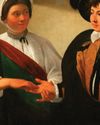
Fingers, frog's and fairies
Fortune telling was all the rage in the 16th and 17th centuries, and practitioners would stop at nothing to tap in to the supernatural. Martha McGill tells a story of Highland seers, tarot cards and encounters with the spirit world
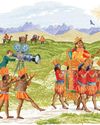
Nothing matches being with Alexander the Great on foot in the Hindu Kush
AT OUR LITTLE FILM COMPANY, MAYA VISION, we recently took the decision to digitise all of the rushes of our key films so that we could dispose of hundreds of boxes of tapes that had been kept in storage, throwing out stuff we thought we would never need again.

Library of the dead
Highgate Cemetery, created as a fashionable resting place for wealthy Victorian dead, is a veritable who's who of London's great and good. PETER ROSS roams the avenues of this most atmospheric necropolis
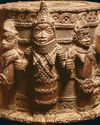
Slavery, exploitation and racism. These tragedies have long dominated histories of Africa. But there's another way to tell this story. And it's one that puts Africans right at the centre of their continent's extraordinarily rich and vibrant past
An 1414, in the Chinese city of Nanjing, a giraffe caused a stir. Amid a crowd of shocked, noble spectators, an official, leading the creature via a rope tied round its face, presented it to China's Yongle emperor. His officials said it was a qilin - an auspicious unicorn - which his sage governance had made appear.
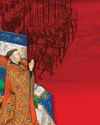
England's forgotten hero
When the Hundred Years' War was reaching a climax, one man was fighting tenaciously to secure the English claim to the French crown. So why, asks Joanna Arman, is Henry V's formidable brother, John, Duke of Bedford, not better known?
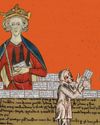
HENRY III AND THE MAGNA CARTA THAT MATTERED
King John's sealing of a charter at Runnymede in 1215 is one of the most feted moments of the Middle Ages. Yet, writes David Carpenter, it was the charter issued by his son 10 years later that became fundamental to England's history

Gutenberg publishes a pioneering new book
‘The printing press triggers an information revolution
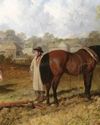
How empire ruptured rural Britain
We know that enslaved Africans and their descendants suffered in the distant colonies of empire. But, as Corinne Fowler explains, the colonial system also had dire impacts on people in the countryside of the 'motherland'

"I FELT VERY ALONE IN A WORLD GONE HORRIBLY MAD"
It was a moment of possibilities, dislocation and dread. Dan Todman tells the story of the 1.5 million urban Britons evacuated to the countryside at the start of the Second World War